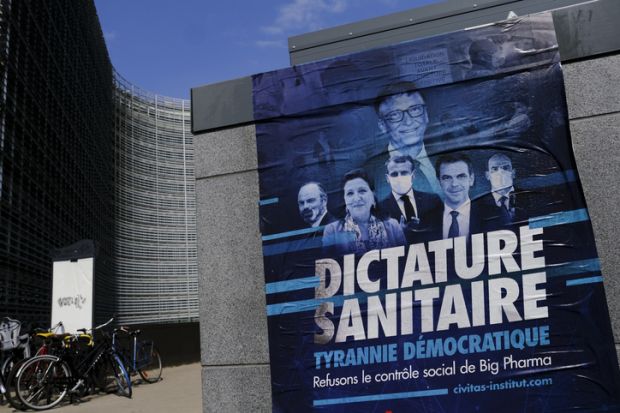Nearly a quarter of scientists who have commented publicly on Covid-19 say they were subsequently threatened with violence, with one in seven reporting receiving death threats, according to a survey.
The global poll of 321 scientists who had spoken to the media or posted on social media during the pandemic found that seven out of 10 reported negative consequences.
The survey, conducted by Nature magazine, found that the majority of respondents reported attacks on their credibility; more than 40 per cent said that they suffered emotional or psychological distress and 30 per cent felt that they had sustained reputational damage.
More than a quarter of respondents said they “always” or “usually” received comments from trolls or personal attacks after speaking about Covid-19.
Perhaps most worryingly, 22 per cent said that they had received threats of physical or sexual violence, and 15 per cent experienced death threats. Six said that they had been physically attacked.
The Nature survey was adapted from a smaller questionnaire initially circulated by the Australian Science Media Centre (SMC), which found similar results. Respondents to the latest survey, published on 13 October, were contacts of science media centres in the UK, Canada, Taiwan, New Zealand and Germany, as well as academics who had spoken to the media in the US and Brazil.
The magazine said the survey results followed high-profile incidents such as when the UK’s chief scientific adviser, Chris Whitty, was grabbed and shoved in a London park, and the assigning of bodyguards to Anthony Fauci, director of the US National Institute of Allergy and Infectious Diseases, following death threats.
Andrew Hill, a pharmacologist at the University of Liverpool’s Institute of Translational Medicine, told Nature it was “very harrowing if every day, you open up your emails, your Twitter, you get the death threats, you get abuse every single day, undermining your work”.
Despite the harassment, 85 per cent of survey respondents said that their experiences of engaging with the media were always or mostly positive.
However, respondents who reported higher frequencies of trolling or personal attacks were most likely to say that their experiences had greatly affected their willingness to speak to the media in the future.
Fiona Fox, chief executive of the UK SMC, told Nature that it would be “a great loss if a scientist who was engaging with the media, sharing their expertise, is taken out of a public debate at a time when we’ve never needed them so badly”.
后记
Print headline: Covid experts threatened with violence, death






